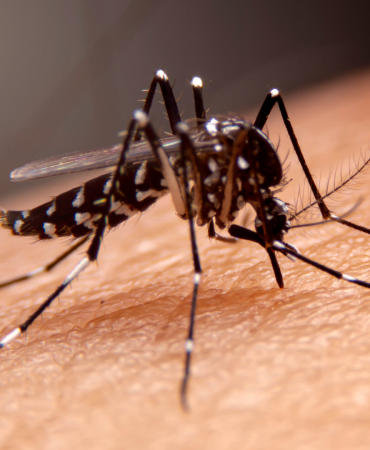A mosquito pool collected by the Metro Public Health Department (MPHD) Pest Management Team has tested positive for West Nile Virus. The trap to collect the mosquito pool had been set in Rayon City. This is the first detection of West Nile Virus of 2024, following a high level of West Nile Virus in mosquito pools collected in 2023. There have been no human cases of West Nile Virus reported in 2024.
The Health Department's Pest Management staff sends fliers to residences in the impacted areas with steps to protect against biting mosquitoes and to take steps to reduce standing water where mosquitoes can lay eggs. This is in addition to Pest Management revisiting these areas and setting additional traps, monitoring areas of standing water, and applying larvicide if mosquito larvae are present. The Health Department does not spray to kill adult mosquitoes.
In 2023, MPHD's Pest Management recorded a high level of West Nile Virus, recording the virus in nearly 23% of traps collected throughout the year. Roughly 2% of traps collected in 2022 and 2021 tested positive for West Nile Virus. The summer of 2023 also saw the first human case of West Nile Virus in Nashville in more than five years. Reducing the number of mosquitos reduces the chance of the transmission of West Nile Virus to humans and animals.
In addition to trapping and testing mosquitos for diseases like West Nile Virus every week, MPHD's Pest Management Team offers guidance to the community on how to reduce the presence of mosquitos. Those who would like a free backyard inspection are encouraged to contact the MPHD Pest Management team at 615-340-5660 to learn about places on a property where mosquitos could easily breed and multiply.
Mosquitos often seek out standing water to lay eggs. Reducing or eliminating standing water in places like bird baths, tires, backyard toys and other places can help reduce the mosquito population at your home. Trimming overgrown vegetation can also help limit the mosquito population. Reducing the mosquito population helps reduce the risk of mosquito-borne illnesses like West Nile Virus, improving safety for the entire community.
In addition to taking steps to reduce the mosquito population, health officials also recommend taking personal protective measures to help prevent mosquito bites, including:
- Limiting time outdoors at dusk and nighttime hours when mosquitoes are most active.
- Wearing a mosquito repellent approved for use by the CDC, including products that contain DEET, Picaridin, and Oil of Lemon Eucalyptus.
- Wearing shoes, socks, long sleeve shirts and pants when outdoors during dusk to dawn when mosquitoes are most prevalent. Clothing should be light colored and made of tightly woven materials to keep mosquitoes away from the skin. Pant legs should be tucked into shoes or socks, and collars should be buttoned.
- Making sure windows and doors have screens in good repair.


